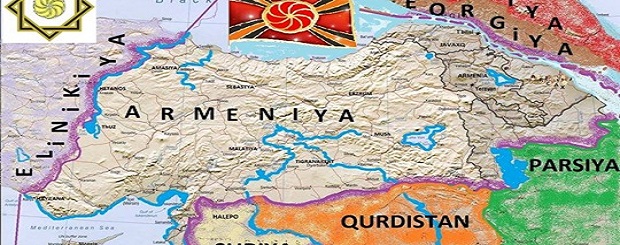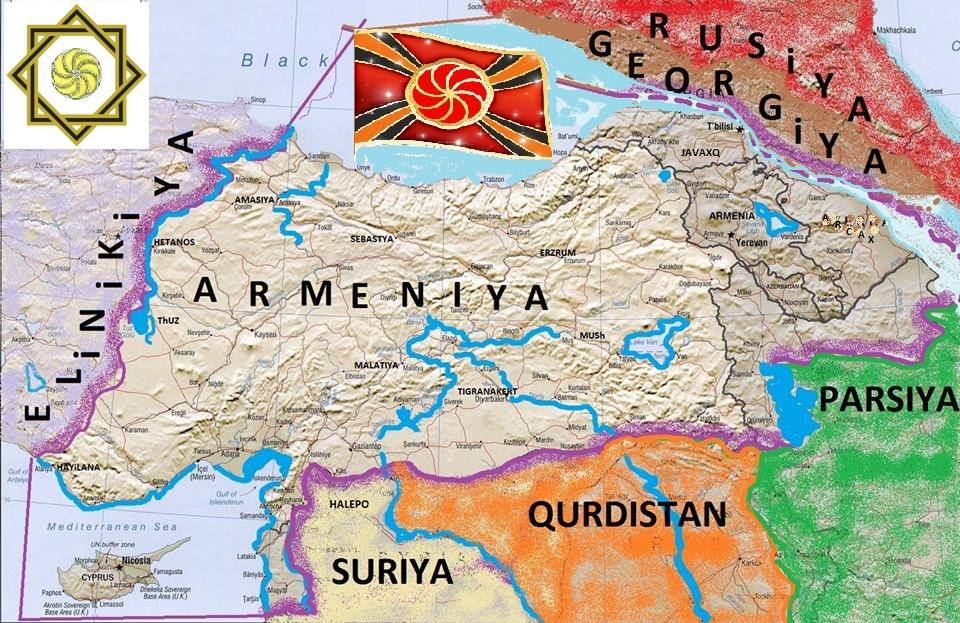
Turkish ethnographer professor Makhturk broke the theory about his own people.
June 26, 2019 – ORIGINE SOURSES-//nashaarmenia.info/2019/09/14/турецкий-профессор-этнограф-професс///
Professor Makhturk is shy that he is a Turk //forum.ykt.ru//
The process of globalization has destroyed the walls of many bans and instilled in many peoples the spirit of freedom, raised them to fight for their rights. Many countries fell apart: USSR, Yugoslavia. Now Iraq is moving towards this. Globalization threatens the perception of ethnic identity. The process of globalization has both positive and negative sides. It is negative that this process can destroy family, religious traditions, and turn the world into a faceless monotonous mass, which can be easily controlled. I, as the son of the Turkish people, have always internally protested against this. Especially after Europe demanded that Turkey amend the 301 article of our legislation. But it has changed a lot in my life.
I am an ethnographer, and for decades studied ancient and modern architecture, songs and dances, national costumes, everyday life, wedding ceremonies, funeral rituals, cuisine, internal and external features of the construction of Turkish houses, etc. He studied everything that was associated with the Turkish people.
I have experienced pride in the culture of my people many times. But I, as a scientist, must transfer this knowledge and culture to the younger generation so that it does not fall under the influence of a foreign culture or anticulture. Therefore, I wanted to know: who we are – the modern Turks, where did they come from and where are we going?
And I, as a true patriot, decided to go to the homeland of my ancestors – to Central Asia and the Altai Territory, to Russia, to see where my ancestors, Seljuks, Oguzes and Turkmen, came to Anatolia in the 12th century. I wanted to get acquainted with the roots of the Turkish people, with the history of their culture, life, traditions, language, family relationships, etc. I wanted to build bridges between the Turks of Turkey and the Turkic-speaking peoples, and to focus their eyes on our common roots. At that time it seemed to me that we are two parts of one people and should have much in common. Our brothers living in Central Asia and Altai lived monotonously on their lands. Of course, during the Soviet period they were subjected to cultural expansion and losses for 70-80 years. But, another thing is 800 years old when we, the Turkish Turks, were biologically separated from our native biological field. For centuries we have lived in a new civilization field, and foreign culture has had a strong influence on our cultural development. Settling is the main influence of the Aborigines on the Seljuks.
Ethnographers know that in order to study and learn the originality of any nation, you need to go to deaf villages where people have not been influenced by time – urbanization, westernization, globalization, etc. Fortunately for the ethnographer, such places are preserved in Central Asia. Of course, not entirely in its pure form, but still a lot of information has been preserved, which gives us an idea of the life, traditions, customs, etc. of the Turkish-speaking peoples from a scientific point of view. I was amazed how we – the Turks of Anatolia – are not like them either externally, or in everyday life, or in their behavior. There is nothing in common that could characterize us as peoples having a single racial affinity. After studying all the information and rich material, I came to the conclusion that the people living in Central Asia and Altai, belonging to the Turkic group, are anthropologically Mongoloids, and we, the inhabitants of Anatolia, belonging to the Turkic group are Caucasians. Of course, in Turkey there are Mongoloid Anatolian Turks, but they are a minority. Then the question arises: if we do not belong to a single anthropological and racial type, then how can we say that we are kindred peoples? And some politicians and people of art call us, exaggerating, blood brothers, despite our external dissimilarity, which can be seen with the naked eye. Some historians explain our Europeism by mixing with Armenians, Greeks, Slavs, etc.
But this sounds unconvincing, because when mixing, some of the characteristics of the texture are preserved, such as, for example, mulattoes and half-breeds. When I returned to Turkey, I decided to find the descendants of those Turkic tribes that 800 years ago came from Altai to Anatolia. I began my travels in Turkey, but from a new perspective on our history. I tried to find common features of the Turkic-speaking peoples. He compared the frets of musical instruments, the construction of melodies, dances, national costumes, rites, customs, and fairy tales. In a word – everything that characterizes the features of a race, nation, tribe. There were no similarities! And I realized that we are not Turks! It was a terrible shock for me. I was tormented by the question: if we are not Turks, then who are we? And who are the Turks? Studying both Turkish sources and works, and foreign ones (we have not had the opportunity to use foreign sources and works for a long time), I will briefly tell the story of how the Turks appeared in Anatolia.
In the 12th century, from the Altai and Central Asia, some Turkic tribes, known in history as ak koyun, kara koyun, oguz, and others, did not find any means of subsistence in their steppes either for themselves or for their sheep, moved to the southeast. The raids on Chinese lands began. And this forced the Chinese to build a huge wall in order to isolate themselves from the Turkic raids and any external influence. After building the Chinese wall, it became impossible for the Turks to survive there, and they moved to Iran, to the Armenian Highlands and to Asia Minor.
Our official historiography represents the Ottoman Empire in a very positive way. Our textbooks are crammed with the ideas of the great Turan, patriotism, pride. Television shows the history of the Ottoman Empire so beautifully that you don’t think about authenticity. And filled with pride for their ancestors. So we write. And what other nations wrote about the formation of our state was unknown to us, and any attempts to use the works of foreign authors or foreign sources were very risky. But now, the Internet has appeared, and all the information has become easily accessible. And what I found in foreign sources shocked me. The first is hatred of the Turks. I was hurt and offended by the words of the great Frenchman, Victor Hugo, about the Turks: “Where you see destruction, death, robbery and violence, you know, the Turks passed there.” But more and more I tend to think that Hugo was right.
From the day the Seljuk Turks settled in Asia Minor and the Armenian Highlands, they began to have problems with demographics. After numerous wars and losses, a young, just-formed state could be left without soldiers and lose its statehood. They understood that the self-reproduction of the army in a natural way is no longer real. Then they solved this problem in another way. The fastest way to replenish your army is to pick up the children of your subjects.
Otrigivanie Christian peoples living in Turkey, was very cruel. Many Christians – Greeks, Armenians, Slavs, Assyrians – could not pay huge taxes of that period. The state, besides natural products, also took money, while the peasants did not have cash. Trade was made by the method of commodity exchange. Christians who could not pay taxes were physically abused or executed, and children and wives were taken instead of taxes. Many were forced to convert to Islam. Increasingly, Christians left the country. On the other hand, over time, many became Turkish-speaking, and after some time – by the Turks.
All these facts have long been known to all, but not to the residents of Turkey. For the slightest deviation from the official course of interpretation of history, the authorities punish severely. Their principle: about the Ottoman Empire, either well or not at all.
The policy of mass cultivation of the peoples of Turkey had and has great political significance for both the Seljuks, the Ottomans and the Turkish Republic. For the revival of the ethnic identity of the autochthonous peoples of Asia Minor and the Armenian Highlands will lead to the death of Turkey.
I do not say that there are no pure-blooded Turks in Turkey. Of course they are. Today, the heirs of Seljuks and Turkmen – relatively purebred Mongoloid Turks – live in some parts of Turkey. Naturally, they could not completely disappear.
Honestly, I don’t want to indicate the places of their compact residence, because they are not to blame for being the descendants of the Seljuks, and they should not be responsible for the cruel acts of their ancestors. We are citizens of one country, and if one of our fellow citizens recognizes, accepts and respects their roots in the way of ethnic self-identification, honors the memory of their ancestors, then he is free to choose ethnicity. This idea may seem ridiculous or provocative to many, because in us sits a huge fear-like monster. This fear, which has passed on to us from our fathers and grandfathers, still lives in our subconscious.
In my opinion, now there are other times. The time has come to throw off this burden of fear and face the truth. This truth is to regain its original roots. Today, in Turkey, everything from the highest ranks to ordinary citizens has the problem of ethnic identity.
Many will ask: why am I talking about ethnic identification right now? I will answer. Recently, more and more, and more boldly, they began to talk about the genocide of the Armenian people, as well as about the genocides of the Greek, Assyrian and even Kurdish peoples. In our circles there are more and more people who do not hide their Armenian, Greek, Assyrian, Slavic roots. The story of Fatie Cetina shook the whole of Turkey. And how many more such Armenian girls who were forcibly kidnapped during their deportation and then recast …
I appeal to my compatriots. My dear, write your family history, write honestly and compassionately, with a sense of responsibility. The souls of our ancestors are restless and roam the vast expanses of the universe. They changed religion to save their family, children and grandchildren. Otherwise, there would be no us. The memory of our ancestors requires a return to our roots.
Professor Makhturk

http://forum.ykt.ru/viewtopic.jsp?id=3574151
ORIGINE SOURSES-nashaarmenia.info/2019/06/06/турецкий-профессор-этнограф-професс/?
